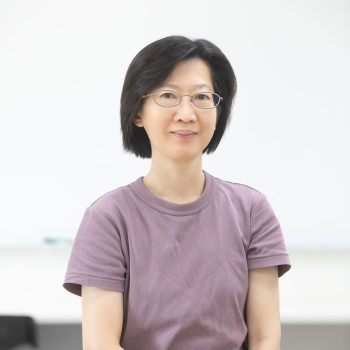系所成員:林佳燕 專任教師簡介
次閱讀
林 佳 燕 CHIA-YEN (Iris) LIN | ||
| 教授 |
 連絡電話 E-mail 學經歷 EXPERIENCE Current Position: Professor in the Department of Foreign Languages and Applied Linguistics, Yuan Ze University, Taiwan Ph.D in Applied Linguistics, Lancaster University, UK MA in English Language Studies and Methods, University of Warwick, UK 研究興趣 RESEARCH INTERESTS |
RESEARCH PUBLICATIONS | |
Journal Articles | |
| 1 | Chia-Yen Lin & Ken Lau. (published online). “I found it very special and interesting”: Evaluative language in Master’s thesis defenses in Taiwan universities. Journal of English for Academic Purposes. (SSCI) |
| 2 | Li-Chin Chen & Chia-Yen Lin. (Accept). Does ‘okay’ mean different things in lectures delivered by teachers of English as an academic lingua franca and those using English as an L1? Asian Journal of Applied Linguistics. |
| 3 | Ken Lau, Chia-Yen Lin & Eric Odle. (2021). ‘I am just saying maybe …’: Engagement in Dissertation Defenses. Language and Education, 35, 1-21. (SSCI) |
| 4 | Chia-Yen Lin. (2020). Pragmatic force modifiers in English-medium master’s thesis defenses in Taiwan universities. English for Specific Purposes, 58, 30-42. (SSCI) |
| 5 | Angela Diaz, Ken Lau & Chia-Yen Lin. (2020). Pragmatic functions of I think in computer-mediated, cross-cultural communication between Taiwanese and Japanese undergraduate students. Pragmatics, 30, 509-531. (SSCI) |
| 6 | Chia-Yen Lin, Ken Lau & Jacob Cousineau. (2018). Lecturers’ and students’ perceptions of the use of modifiers. ELT Journal, 72(1), 62-72. (SSCI) |
| 7 | Chia-Yen Lin. (2017). ‘I see absolutely nothing wrong with that in fact I think…’: Functions of modifiers in shaping dynamic relationships in dissertation defenses. Journal of English for Academic Purposes, 28, 14-24. (SSCI) |
| 8 | Ken Lau & Chia-Yen Lin. (2017). Internationalization of Higher Education and Language Policy: The Case of a Bilingual University in Taiwan. Higher Education, 74(3), 437–454. (SSCI) |
| 9 | Ken Lau, Jacob Cousineau & Chia-Yen Lin. (2016). The use of modifiers in English-medium lectures by native speakers of Mandarin Chinese: A study of student perceptions. Journal of English for Academic Purposes, 21, 110-120. (SSCI) |
| 10 | Kok-Hong Ho, Chia-Yen Lin & I-Chung Ke. (2018). The use of yes in a synchronized computer-mediated communication between Taiwanese and Japanese non-native English speaking students (pp. 198–237). Crane Publishing. |
| 11 | Jia-Rou Liu, Chia-Yen Lin & Shu-Chang Lin. (2018). Multilingual communication strategies used by Taiwanese and Japanese college students in intercultural long-distance communication (pp. 139–178). Crane Publishing. |
| 12 | Chia-Yen Lin. (2015). An exploratory comparison of the use of modifiers by native speakers of English and Mandarin Chinese in academic lectures. Text & Talk, 35(1), 77-100. (SSCI) |
| 13 | Chia-Yen Lin. (2015). Seminars and interactive lectures as a community of knowledge co-construction: The use of modifiers. English for Specific Purposes, 38, 99-108. (SSCI) |
| 14 | Ken Lau & Chia-Yen Lin. (2014). The Role of English as a Lingua Franca in Social Integration: The Case of the International Students of a Taiwan University. The Asian Journal of Applied Linguistics, 1, 36-49. |
| 15 | Yi-Chen Chen, Chia-Yen Lin & Shuchang Lin. (2014). EFL Learners’ cognitive styles as a factor in the development of metaphoric competence. Journal of Language Teaching and Research, 5(3), 698-707. |
| 16 | Reena Maskara, Ken Lau & Chia-Yen Lin. (2014). A Comparative Study of Recommendation Letters Issued by Indian and British Authors. Voices in Asia, 1(1), 1-17. |
| 17 | Chia-Yen Lin. (2012). Modifiers in BASE and MICASE: A matter of academic cultures or lecturing styles? English for Specific Purposes, 117-126. (SSCI) |
| 18 | Chia-Yen Lin. (2010). ‘. . . that’s actually sort of you know trying to get consultants in . . .’: Functions and multifunctionality of modifiers in academic lectures. Journal of Pragmatics, 42(5), 1173-1183. (SSCI) |
| Research Monograph | |
| 1 | I-Chung Ke, Chia-Yen Lin & Suchang Lin. (2018). Foreign language teaching based on multilingual and multimodal communication projects in the globalization context. Crane Publishing. |
Research projects | |
Projects funded by the Ministry of Science and Technology, Taiwan | |
| 1 | Principle Investigator, A corpus-based comparative analysis of evaluative language in postgraduate supervisory meetings in Taiwan, Hong Kong and the United Kingdom. (MOST109-2410-H-155-034-MY3) |
| 2 | Principle Investigator, Rapport management in PhD dissertation defenses in Taiwan universities and in MICASE: Corpus-based and discourse-analytical methods. (MOST108-2410-H-155-004) |
| 3 | Principle Investigator, Evaluation in oral defenses and reviewer comment. (MOST106-2410-H-155-028) |
| 4 | Principle Investigator, Modifiers in dissertation defenses: A tale of three universities. (MOST104-2410-H-155-028) |
| 5 | Principle Investigator, A longitudinal study of metadiscourse in multimodal ELF communication between Taiwanese and Japanese college students. (MOST103-2410-H-155-040) |
| 6 | Principle Investigator, A cross-sectional and longitudinal study of metadiscourse in multimodal ELF communication between Taiwanese and Japanese college students. (NSC102-2410-H-155-031) |
| 7 | Principle Investigator, Metadiscourse in English-medium lectures within the discipline of Engineering: A comparison between native speakers of English and Mandarin Chinese. (NSC101-2410-H-155-035) |
| 8 | Principle Investigator, Functions of modifiers in BASE and MICASE: A cross-cultural comparison. (NSC100-2410-H-155-038) |
| 9 | Principle Investigator, A cross-cultural comparison of modifiers in BASE and a Taiwanese lecture corpus. (NSC99-2410-H-155-043) |
Projects funded by the Ministry of Education, Taiwan | |
| 1 | 105學年元智大學創新教學佈建人才橋接國際計畫 - 國際名校合作研究教學補助專案/主持人 (計畫編號120017-80) |
| 2 | 106學年元智大學高教深耕全球跨域計畫專案 - 跨國跨域專業英語合作教學與研究/主持人 (計畫編號117211-222211) |
| 3 | 107學年元智大學高教深耕全球跨域計畫專案 - 跨國跨域專業英語合作教學與研究/共同主持人 (計畫編號117102-131001) |
| 4 | 108學年元智大學高教深耕全球跨域計畫專案 - 跨國跨域專業英語合作教學與研究/共同主持人 (計畫編號117117-121001) |
| 5 | 109學年元智大學高教深耕全球跨域計畫專案 - 跨國跨域專業英語合作教學與研究/共同主持人 |
| Teaching | |
| 1 | English for Specific Purposes, Discourse Analysis, Pragmatics, Academic Writing |